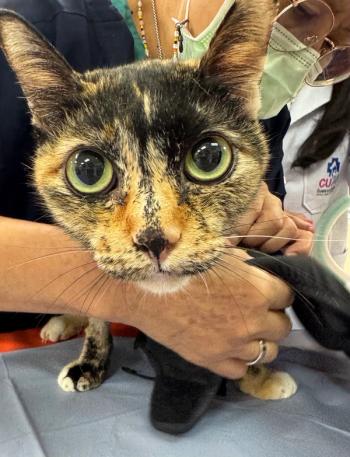
Leading Off: Make sure you're up-to-date on your heartworm disease recommendations
Do you recommend year-round preventives to help control parasitic disease and increase client compliance?
At the 2007 American Heartworm Society symposium, held in conjunction with the American Veterinary Medical Association meeting in July, speakers from all over the world presented their latest research findings. Wolbachia species and its association with heartworm disease were discussed in detail, with suggestions of treatment with tetracycline while research continues. Feline heartworm disease was highlighted, with researchers showing that heartworms in cats do not need to reach maturity to cause airway and arterial disease.
Sheldon Rubin, DVM, is the president of the American Heartworm Society and chief of staff emeritus of Blum Animal Hospital in Chicago.
An interesting discussion occurred during the symposium regarding dogs from Hurricane-Katrina-ravaged areas relocated throughout the United States causing reservoirs of heartworm disease in areas that have had a low incidence of disease in the past. In addition, potential heartworm preventive failures were discussed with some eye-opening results. The papers from the 2007 American Heartworm Society symposium will be published in the spring in Veterinary Parasitology.
Unfortunately, heartworm disease is spreading. In a 2004 national heartworm survey, 250,000 heartworm cases were reported throughout the United States.* Although the number of clinics responding was significant, it is estimated that the number of dogs with heartworm disease is probably closer to 500,000.
Is heartworm disease one of your differential diagnoses in dogs that are presented for evaluation of coughing or that have loss of stamina? What about a cat that has a history of bronchitis or asthma or may be vomiting and losing weight—Is heartworm disease part of your thinking? If you diagnose heartworm disease, how are you treating it? Do you treat it the way you did 10 years ago? What about monthly prevention? Do you discuss and recommend year-round preventives to help control parasitic disease as well as to increase client compliance?
Your clients are demanding the best medical care for their pets. Although the eradication of heartworm disease is not on the horizon, the American Heartworm Society wants to be sure that every veterinarian follows its gold standard protocol for preventing and treating heartworm disease in dogs and cats. To update your skills, visit our Web site at
And while you're on the American Heartworm Society site, join this one-of-a-kind organization of practitioners and researchers seeking to further research into the causes, diagnosis, treatment, and prevention of heartworm disease. Be a leader in heartworm disease prevention in your area, and give your clients what they are seeking—the best veterinary care available.
*The results of this survey are available at http://
Newsletter
From exam room tips to practice management insights, get trusted veterinary news delivered straight to your inbox—subscribe to dvm360.






